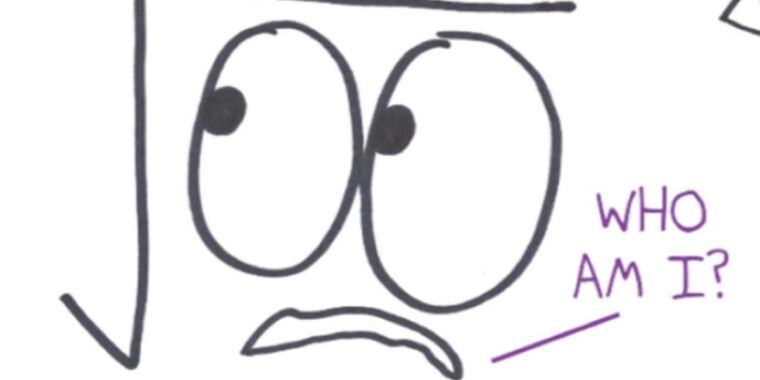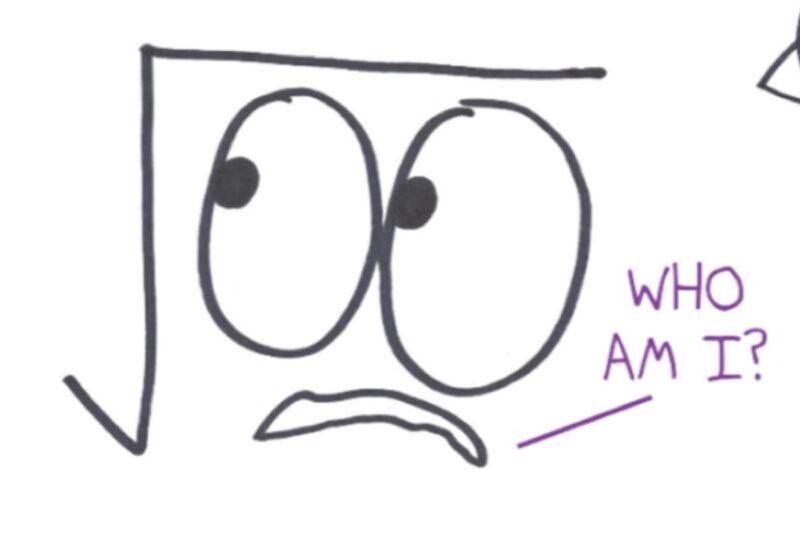
Ben Orlin
Math, we like to say, is math. It often seems that mathematics is something beyond our control—something unyielding, universal, inhuman.
But is it really?
Yes and no. Math may be the language of the cosmos, but it’s also a human language, with its own quirky etymologies, classic literature, and hilarious regional accents. In fact, you could say that math has as many styles—as many idiolects—as it has speakers.
So what’s your mathematical style? Answer these questions and find out!
1. How do you refer to the square root of two?
a. √2
b. 21/2
c. “The positive solution to x2 = 2”
d. I tease it by calling it “1.4 precisely” or “the diagonal that must not be spoken”
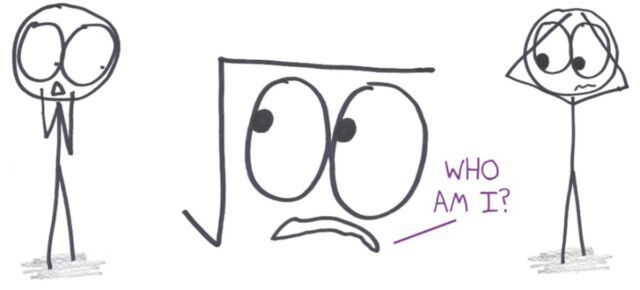
Ben Orlin
2. If you see someone write “0.33333,” how do you interpret this?
(a) They clearly meant 1/3.
(b) They clearly meant 33,333/100,000.
(c) Looks like a fifth-iteration address in a generalized Cantor set. But I can’t tell the specifics without more context.
(d) It’s a coded message to my android brain. To escape the time loop, we must follow Commander Riker’s plan and decompress the main shuttle bay.
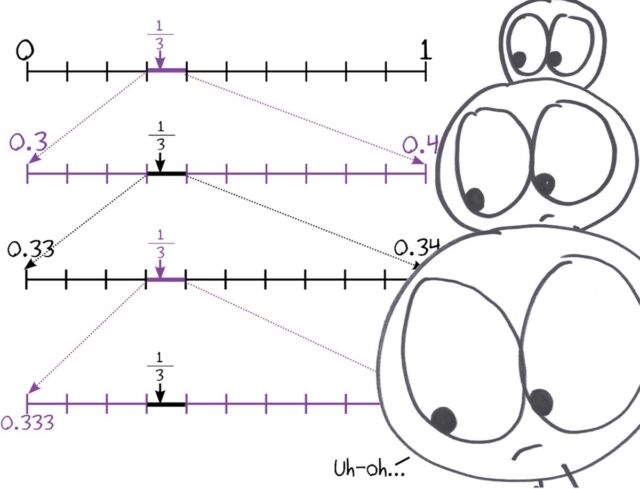
Ben Orlin
3. Quick, name the first number that pops into your head.
(a) Seven.
(b) 3+4i.
(c) Oops, I sampled uniformly from the unit interval and got something non-computable. I can’t express it in finite time. Sorry.
(d) Legendre’s Constant (which is how I like to say “one”).
4. What’s your favorite kind of geometry?
(a) Euclidean.
(b) Non-Euclidean.
(c) Does “algebraic geometry” count?
(d) I assume you’re asking “If you could live on a giant piece of pasta, what shape would you pick?” Well, long story short: cascatelli.
5. Given two variables, what names would you assign to them?
(a) x and y
(b) x1 and x2
(c) xi and xj
(d) “Hootie” and “the Blowfish”
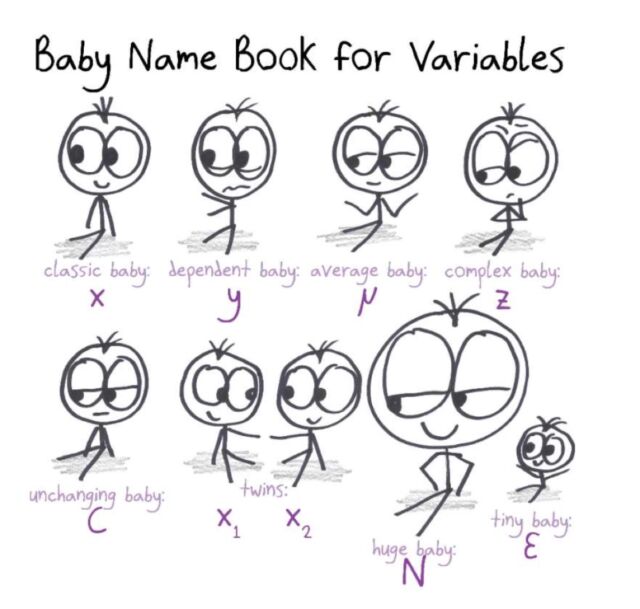
Ben Orlin
6. What are your views on Pi Day?
(a) Positive. I like math and pie is tasty.
(b) Vehemently opposed. The US date format is inferior, 3.14 is a worse approximation than 22/7, and digit memorization is… wait, where are you going?
(c) Sorry, I don’t know that notation… π day, as in the differential of ay?
(d) Here’s my gripe: Since all possible dates and times can be found in π’s decimal expansion, why is Pi Day just once a year? Why aren’t we eating pie every moment of our lives, and specifically, right now?
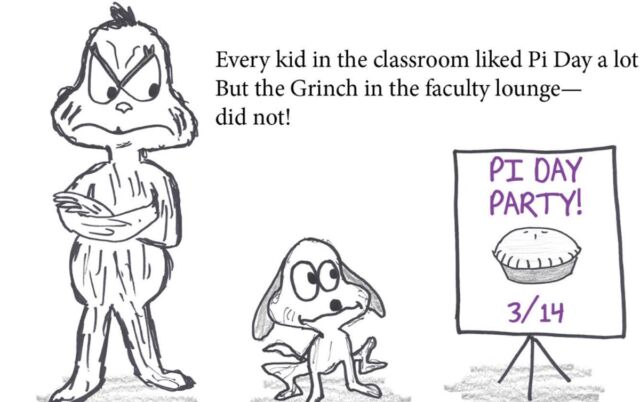
7. What is your preferred base for a number system?
(a) Base 10, I guess.
(b) Base 12. Base 10 is a monument to human stupidity and should be abolished tomorrow.
(c) I favor integer bases, but it’s not an overwhelming preference.
(d) Unary, aka base one, aka, tally marks. It’s a cool aesthetic, plus it would comfort AI doomers (it’s very slow to train a neural network when storing all the weights as tally marks).
8. What is your favorite kind of mathematical puzzle?
(a) Sudoku.
(b) Solving quartics by hand.
(c) I’d say NP-Hard. Or, wait… did you mean a class of actual isomorphs?
(d) Ha, nice try, but I’m not going to nerd-snipe myself.
9. How do you feel about writing a radical in a denominator, as in 1 / √𝟐
(a) Fine.
(b) Deeply ambivalent—nay, spiritually tortured.
(c) Fine.
(d) Fine.
10. Who is your mathematical hero?
(a) Euler.
(b) Gödel.
(c) Grothendieck.
(d) Well, I’m still fleshing out the story, but here’s what I have so far: By day, she is Sylvia McMath, an unassuming high schooler. By night, she dons a topologically nontrivial cape and becomes THE NONLINEAR OPERATOR…
QUIZ RESULTS:
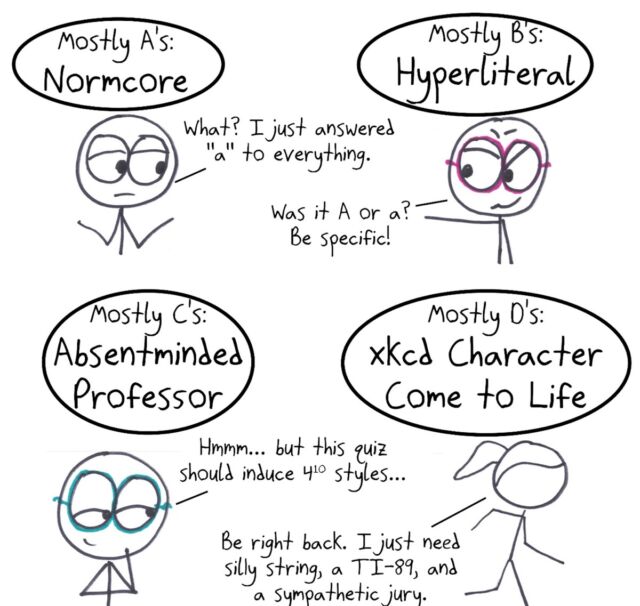
Mostly A’s: Your style is NORMCORE.
More self-conscious styles sometimes amuse you, and sometimes frustrate you, but they never feel like you. Your aim is not to rock the boat; it’s to speak the plainest, most unaccented math that you can, so that your ideas are judged for content and accuracy rather than flamboyance of presentation.
In short, it’s about the story, not the flashy prose. Your literary equivalent is Dan Brown.
Mostly B’s: Your style is HYPERLITERAL.
You delight in the pedantry of mathematical culture. This is a language of precision, every symbol’s meaning honed to a sharpened point—and you love wielding those sharp points to poke and prod speakers less precise than yourself.
In short, you’re a linguistic troll. Your literary equivalent is David Foster Wallace.
Mostly C’s: Your style is ABSENTMINDED PROFESSOR.
All mathematicians generalize, but you have elevated this from a habit into a lifestyle. Why give a single example when you can fully characterize the class of all possible examples? Why answer a question when you can instead embed that question in a high-dimensional question-space, and provide an algorithm for answering all questions therein?
In short, you’re an incurable philosopher. Your literary equivalent is Jorge Luis Borges.
Mostly Ds: Your style is XKCD CHARACTER COME TO LIFE.
You have a whimsical and expansive view of mathematics—namely, you see it as fertile ground for bits and running gags.
In short, you’re a prankster. Your literary equivalent is Douglas Adams.

